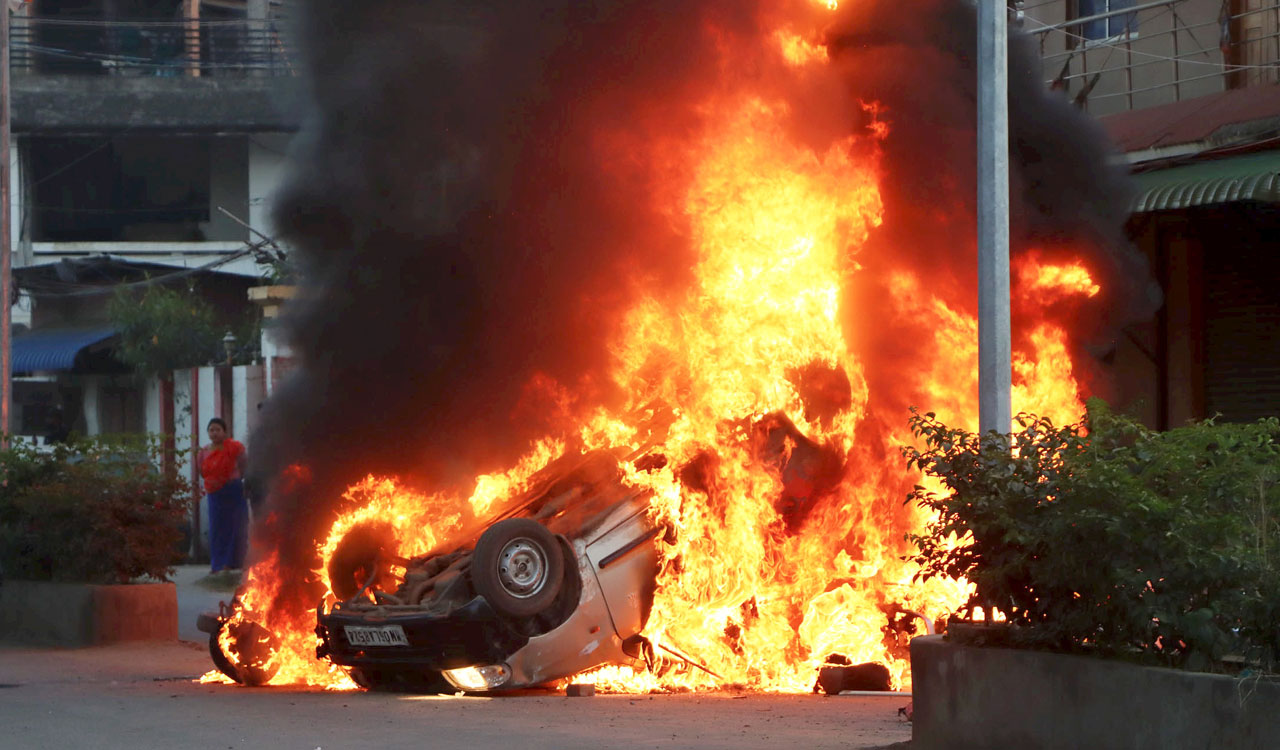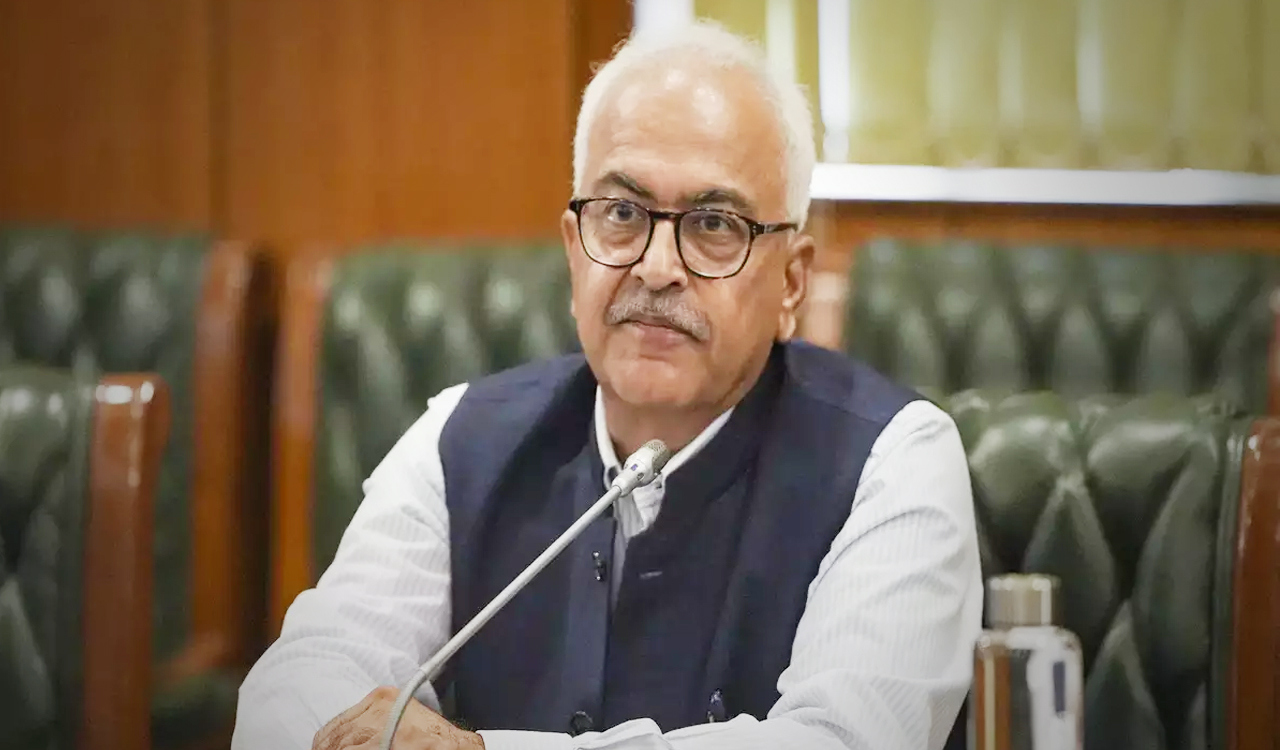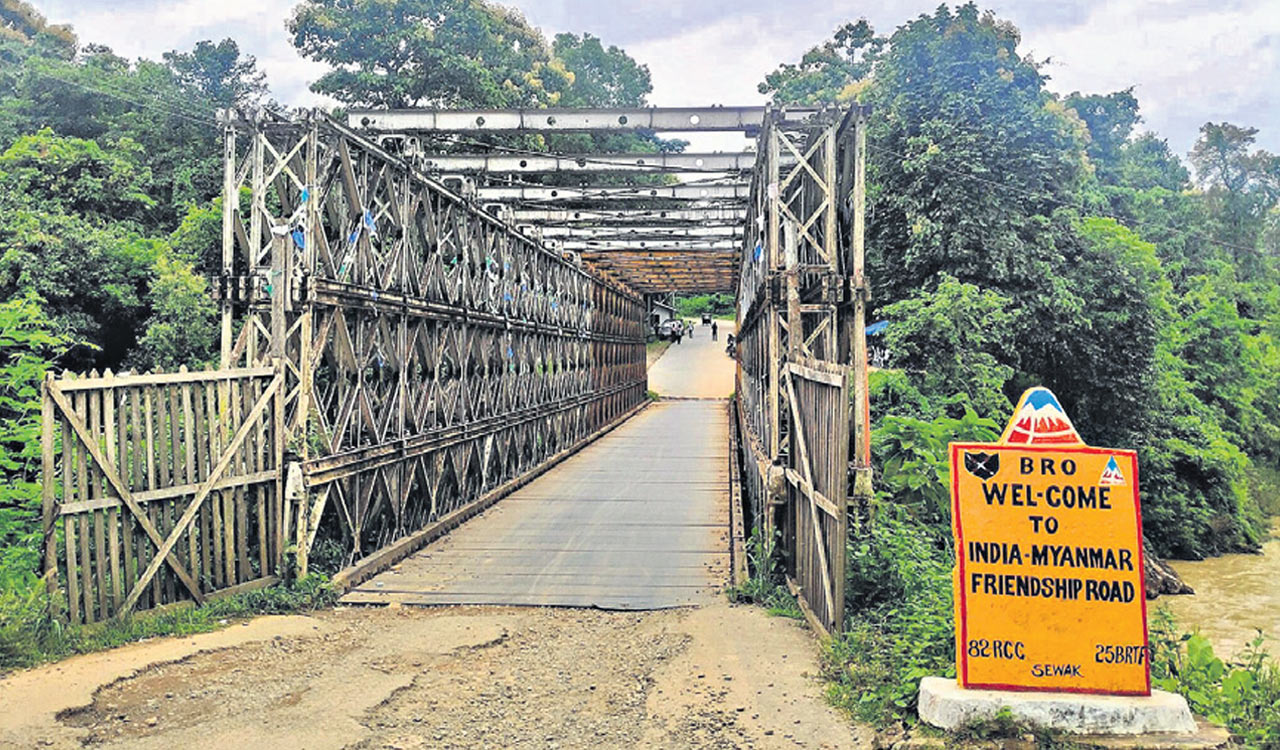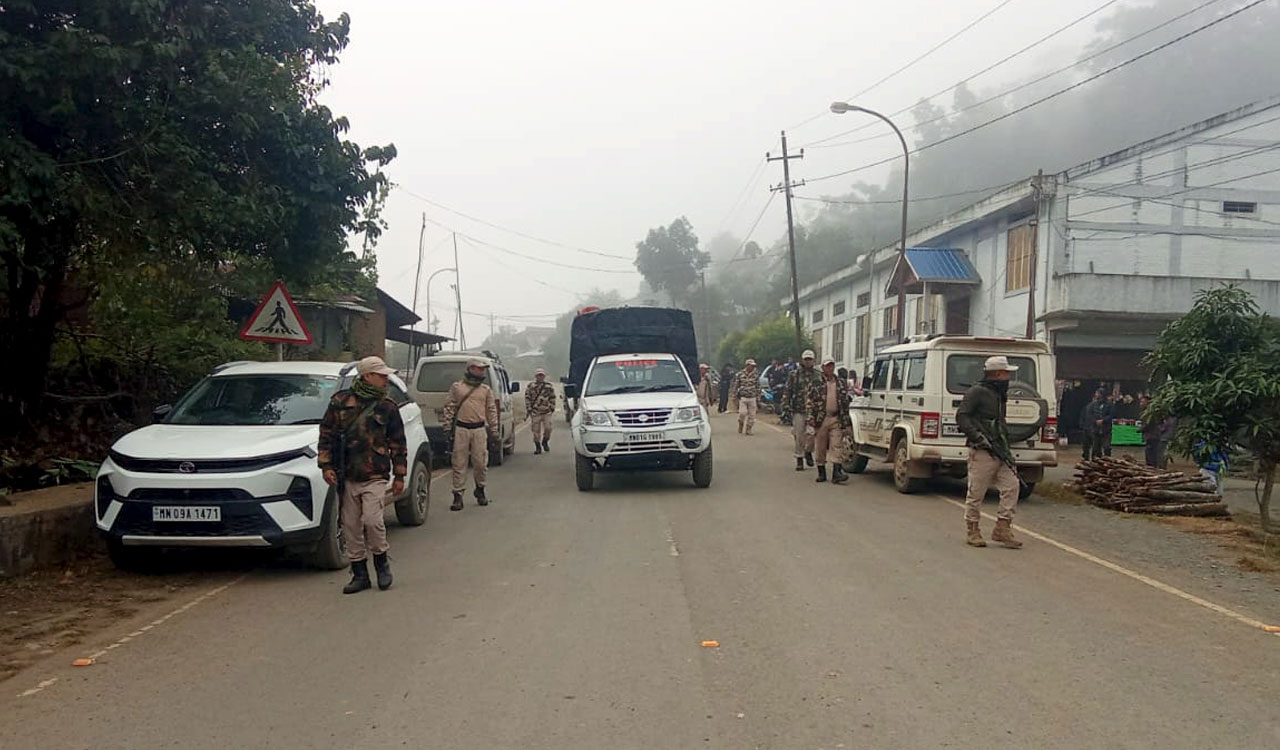Editorial: Receding hopes
There is an all-pervading sense of helplessness amid the failure of the administration to check the growing violence in Manipur

The ominous developments in Manipur — spurt in ethnic violence, targeted killings, attacks on residences of legislators and ministers, and the reimposition of the Armed Forces (Special Powers) Act (AFSPA) — mark a deepening crisis in a State that has remained a mute witness to the apathy of both State and central governments. Hopes of peace and stability returning to the strife-torn north-eastern State are fast receding. There is an all-pervading sense of helplessness amid the failure of the administration to check the growing violence. The situation in Manipur highlights the fragility of peace in regions marred by ethnic divides and inept governance. Chief Minister Biren Singh’s position has become untenable following the exit of the National People’s Party (NPP) from the BJP-led coalition government, accusing him of complete failure to resolve the crisis and restore normalcy. The ethnic clashes between the Meitei and Kuki communities have led to over 250 deaths and displaced tens of thousands in a State that has always been geographically carved into two ethnically segregated enclaves — the plains and the hills. The recent murders of a Kuki woman and children came as grim reminders of the huge human cost of this conflict. Despite curfews and internet suspensions, the unrest continues, exposing the government’s inability to restore order. These measures, often employed to curb the spread of misinformation and prevent violence, have inadvertently stifled communication and legitimate dissent. While such actions might temporarily suppress unrest, they fail to address the root causes of the conflict or the demands for justice.
The return of the dreaded has created an environment of mistrust between civilians and the military. In Manipur, its presence has often been linked with allegations of human rights violations, further complicating the peace process in a region where historical grievances already run deep. While the union Home Ministry has cited volatile conditions and active participation of insurgent groups in heinous acts of violence, the decision to reintroduce AFSPA as the most effective approach to quell these issues is questionable. The State’s challenges extend beyond insurgency and violence. Ethnic divides, regional grievances and economic stagnation have contributed to the unrest. On the political front, the Biren Singh government suffered a setback following the withdrawal of support by a key political ally. Though it does not pose an immediate threat to the BJP government, the development reflects growing discontent within the political establishment itself. The ransacking and arson of leaders’ homes reflect not just anger but desperation among citizens who see no end to the bloodshed or accountability for the atrocities committed. What makes the situation more alarming is the apparent lack of a coherent strategy to bridge the ethnic divide. Both the Meitei and Kuki communities feel marginalised. The onus is on the central government to step in and arrest the tide of ethnic violence involving the two warring communities.
Related News
-
Cartoon Today on December 25, 2024
6 hours ago -
Sandhya Theatre stampede case: Allu Arjun questioned for 3 hours by Chikkadpallly police
7 hours ago -
Telangana: TRSMA pitches for 15% school fee hike and Right to Fee Collection Act
7 hours ago -
Hyderabad: Organs of 74-year-old man donated as part of Jeevandan
7 hours ago -
Opinion: The China factor in India-Nepal relations
7 hours ago -
Editorial: Modi’s Kuwait outreach
7 hours ago -
Telangana HC suspends orders against KCR and Harish Rao
8 hours ago -
Kohli and Smith will be dangerous and hungry: Shastri
8 hours ago




